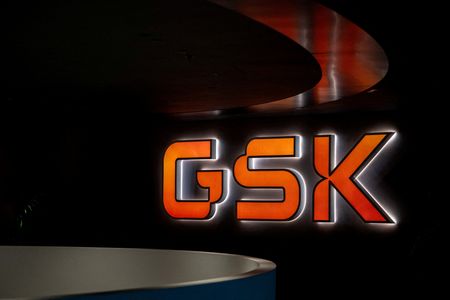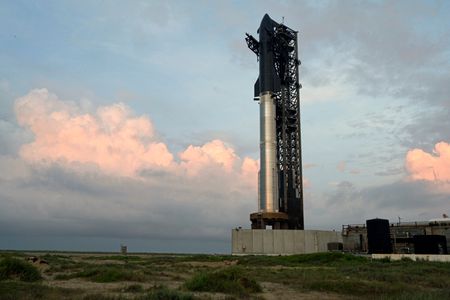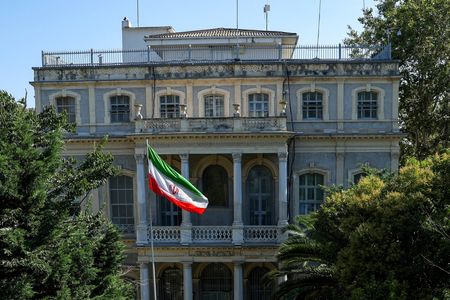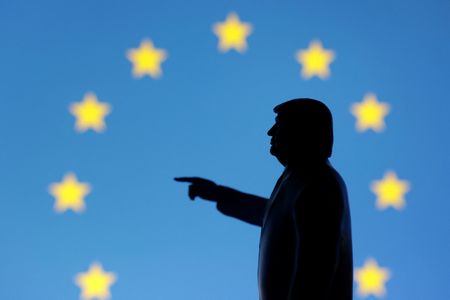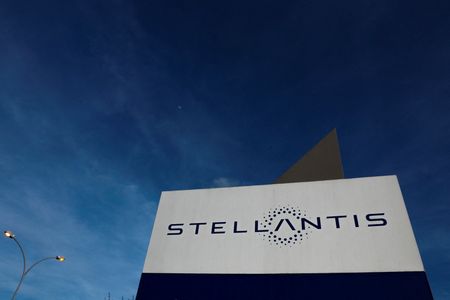By Pushkala Aripaka and Maggie Fick
(Reuters) – GSK on Wednesday said it was “well positioned” to absorb potential U.S. pharmaceutical tariffs, citing AI-driven cost cuts and dual sourcing for its medicines, but offered few details.
The British drugmaker reported stronger-than-expected first-quarter results and reaffirmed its 2025 outlook, sending its shares up 3.8% by 0900 GMT. They were among the top gainers on London’s FTSE 100 index, which was up 0.02%.
U.S. President Donald Trump has proposed sector-specific tariffs, including an unspecified “major” levy on pharmaceuticals, prompting concern given the industry’s global supply chain. One report estimated pharma tariffs could raise U.S. drug costs by $51 billion annually.
GSK said it had identified supply chain and productivity options to mitigate any hit from tariffs.
CEO Emma Walmsley told journalists the tariffs-impact planning included greater reliance on AI and technology.
She said GSK also worked during Haleon’s demerger in 2022 to “reset” its supply chain “for regional resilience and dual sourcing”. So new steps to dual source for certain markets are not needed now, she added.
GSK is focusing on expanding newer products, particularly in infectious diseases, to offset declining sales from top drugs and vaccines as demand slows and competition increases.
GSK is also bracing for patent expirations in its HIV portfolio.
GSK reported first-quarter turnover of 7.52 billion pounds ($10.07 billion) and core profit of 44.9 pence per share, narrowly topping analysts’ expectations of 7.42 billion pounds and 40.9 pence per share, respectively, according to a company-compiled consensus.
A year earlier, GSK reported first-quarter turnover of 7.36 billion pounds and core profit of 43.1 pence per share.
Lucy Coutts, investment director at wealth managers JM Finn, a GSK shareholder, said that GSK’s better-than-expected Q1 results, boosted by cancer medicines, were welcome news for the market eager to see the company reinvigorate its “ageing HIV and asthma drugs pipeline.”
Vaccine sales fell 6% to 2.1 billion pounds, with its newer RSV shot Arexvy bringing in just 0.1 billion pounds, down 57%.
The company is a “bit cautious in the current environment” on the outlook for its vaccines business, Walmsley said, adding the company remains optimistic for the value of its products in this area.
The new U.S. Health Secretary Robert F. Kennedy Jr. is a known vaccine sceptic.
GSK had projected Arexvy to be a blockbuster product, estimating peak annual sales of 3 billion pounds, but sales have missed market expectations for several quarters.
For 2025, the company continues to expect turnover to grow 3-5% and core earnings per share to rise 6-8% at constant currency rates. In 2024, turnover rose 7% and core earnings per share rose 10%.
(Reporting by Pushkala Aripaka in Bengaluru and Maggie Fick in London; Editing by Rashmi Aich, Elaine Hardcastle, Aidan Lewis and Jane Merriman)

